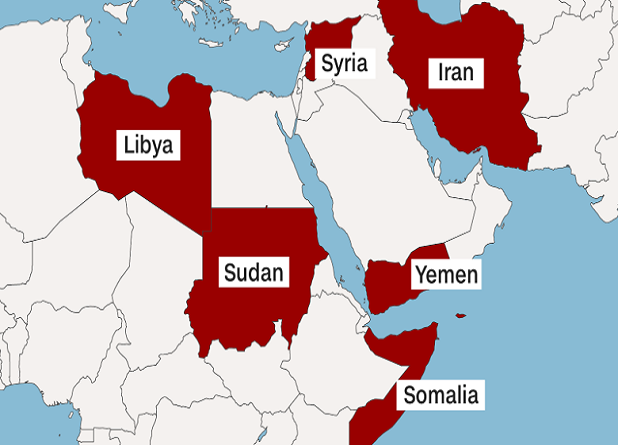UPDATE 7/19/17 – The Trump administration challenged the Hawaii ruling in the US Supreme Court. The Supreme Court upheld the ruling as to grandparents and other relatives, but did not uphold the portion of the Hawaii ruling regarding refugees with a formal assurance of resettlement from a resettlement agency. This means that for the time being only refugees with a close family relationship will be allowed to enter the country. The full case will be heard by the Supreme Court in October.
UPDATE 7/14/17: Yesterday a Hawaii court ruled that the definition of a “close family relationship” will also include grandparents, aunts, uncles, neices & nephews, and cousins (who were all formerly excluded from the definition of family). The court also ruled that refugees who had formal assurances of resettlement with a US resettlement agency would also be excluded from the ban. The Hawaii decision applies nationwide and should go into effect immediately.
6/26/17 – On Monday, the Supreme Court agreed to partially lift the block on the travel portions of the Muslim ban and to hear the case this fall. Below are answers to some of the most frequently asked questions about what that means. If you have questions that are not answered here.
REMEMBER THE BAN ONLY AFFECTS NATIONALS OF THE FOLLOWING SIX COUNTRIES: IRAN, SYRIA, YEMEN, SOMALIA, SUDAN, LIBYA
(Note: If you or anyone you know is being directly impacted by this ban, please report it here.)
Who Is Exempt From the Ban?
- US citizens
- Lawful Permanent Residents (Green Card Holders)
- Dual citizens traveling on passports not issued by one of the six countries
- Students with a documented relationship to a US university or school
- Refugees who have a bona fide close family relationship with a U.S. person or entity (see below)
- Immigrants applying through an immediate relative or family member or through an employer
- Anyone who has been granted asylum or admitted as a refugee;
- Anyone traveling on a diplomatic visa
- NEW as of 7/14/17: Refugees who have a formal assurance of resettlement through a resettlement agency
- Other categories may also be exempt. Consult with an immigration attorney about your individual status.

